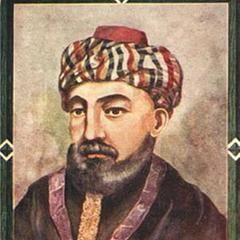
Rabbeinu Bahya ibn Paquda was a rabbi and philosopher in 11th century Spain. In his book “The Duties of the Heart” he explains the proper way to behave. His message is as fresh today as it was a thousand years ago.
Rabbeinu Bahya teaches that a Godly person “is of cheerful countenance and troubled heart. He is exceedingly magnanimous, and his soul is most humble. He neither bears a grudge nor covets nor slanders nor gossips about anyone. He abhors prominence and hates lordship. He is composed of mind, remembers, and expresses gratitude. He is most diffident and of little harm.
If he laughs, it is not to excess; if he is angry, he is not enraged. His laughter is only a smile. When he asks a question, his purpose is to learn.
His knowledge is vast, but his humility great. His resolution is firm, but he is not hasty or foolish in his actions. He argues courteously and responds respectfully. When angered he is just, and when entreated he is responsive. His friendship is genuine, his attachment strong, his pledge steadfast.
He accepts the Creator’s judgment; he rules over his passion. He does not speak harshly of one who does him an injury. He does not occupy himself with what is not useful. He does not rejoice at the calamity [of another] and speaks no evil of anyone. He does not impose [upon others] but is of great help [to them.] He expresses deep gratitude at a time of misfortune; he endures patiently at a time of ruin.
If solicited, he gives; if defrauded, he forgives. Though he is refused, he is generous; though he is shunned, he remains affable. He is softer than butter, sweeter than honey.
He urges [others] to the truth and speaks the truth. He forgoes his desires and looks ahead to the day of his death. He keeps his word.
He is wise, vigorous, a noble soul, and pleasant to others. He is a hero on earth and beyond all reproach; a help to the poor and salvation to the oppressed. He does not uncover what is hidden or reveal a secret. Though his troubles be many, his complaint is little. If he sees something good, he calls attention to it; if he sees evil, he covers it. If he sees something good, he calls attention to it; if he sees evil, he covers it. He is esteemed and pure; intelligent and God-fearing. His company is a joy, his absence a sorrow.
He is wise, vigorous, a noble soul, and pleasant to others. He is a hero on earth and beyond all reproach; a help to the poor and salvation to the oppressed. He does not uncover what is hidden or reveal a secret. Though his troubles be many, his complaint is little. If he sees something good, he calls attention to it; if he sees evil, he covers it. He is esteemed and pure; intelligent and God-fearing. His company is a joy, his absence a sorrow.
Wisdom has refined him, humility has adorned him. He reminds the learned and teaches the ignorant. Any deed [of another] he deems nobler than his own deed; any other soul he regards as purer than his own soul. He knows his own faults and is mindful of his sins. He loves God and strives to do His will. He does not avenge himself or persist in his anger.
He is close with those who remember God. He sits with the poor. He is a friend to devotees of righteousness, faithful toward devotees of truth. He is an aid to the needy, a father to the orphan, a husband to the widow, and his shows respect to the poor.”
May we be inspired by Rabbeinu Bachya’s timeless teachings to improve our character and be a blessing to those around us!
Image: Jewish scribes in Spain, c. 12th century
Our best content in your inbox weekly: https://www.accidentaltalmudist.org/newsletter/